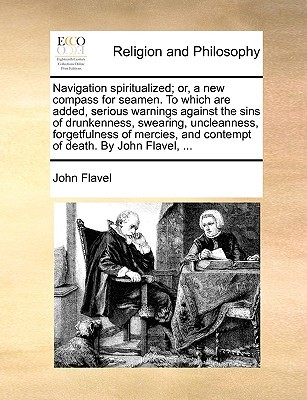- Bible
- Read the Bible
- Bible Versions
- Verse of the Day
- Reading Plans
- Verses by Topic
- Books of the Bible
- Bible Images
- Study
- Commentaries
- Concordances
- Dictionaries
- Encyclopedias
- Sermons
- Bible Atlas & Maps
- BP Wiki
- Devotionals
- Today's Devotionals
- Light of the World
- All Devotionals
- Inspirational Quotes
- More
- Picture Quotes
- Videos
- Inspirational
- Bible Study
- What The Bible Says
- Bible Q&As
- Daily Bread
- Bible by Genre
- Bible Stories
- Random Bible Verse
- Community
- Store
The 18th century was a wealth of knowledge, exploration and rapidly growing technology and expanding record-keeping made possible by advances in the printing press. In its determination to preserve the century of revolution, Gale initiated a revolution of its own: digitization of epic proportions to preserve these invaluable works in the largest archive of its kind. Now for the first time these high-quality digital copies of original 18th century manuscripts are available in print, making them highly accessible to libraries, undergraduate students, and independent scholars.The Age of Enlightenment profoundly enriched religious and philosophical understanding and continues to influence present-day thinking. Works collected here include masterpieces by David Hume, Immanuel Kant, and Jean-Jacques Rousseau, as well as religious sermons and moral debates on the issues of the day, such as the slave trade. The Age of Reason saw conflict between Protestantism and Catholicism transformed into one between faith and logic -- a debate that continues in the twenty-first century.++++The below data was compiled from various identification fields in the bibliographic record of this title. This data is provided as an additional tool in helping to insure edition identification: ++++British LibraryT089582Pp. 45-76 contain the 'Serious Warning' with a separate titlepage.Hull: printed by Thomas Lee and Co., 1791. 76p.; 12
BUY NOW
Paperback, 80 pages
Published May 28th 2010 by Gale Ecco, Print Editions
© 2025 Bibleportal.com All rights reserved.

John Flavel (1628 - 1691)
Was an English Presbyterian clergyman, puritan, and author. Flavel, the eldest son of the Rev. Richard Flavel, described as ‘a painful and eminent minister,’ who was incumbent successively of Bromsgrove, Worcestershire, Hasler and Willersey, Gloucestershire (from which last living he was ejected in 1662), was born in or about 1630 at Bromsgrove.He was ejected from his living by the passing of the Act of Uniformity in 1662, but continued to preach and administer the sacraments privately till the Five Mile Act of 1665, when he retired to Slapton, 5 miles away. He then lived for a time in London, but returned to Dartmouth, where he labored till his death in 1691. He was married four times. He was a vigorous and voluminous writer, and not without a play of fine fancy. His principal works are his Navigation Spiritualized (1671); The Fountain of Life, in forty-two Sermons (1672); The Method of Grace (1680); Pneumatologia, a Treatise on the Soul of Man (1698); A Token for Mourners; Husbandry Spiritualized (1699).
John Flavel was an English Presbyterian clergyman. Flavel was born at Bromsgrove, Worcestershire and studied at Oxford. A Presbyterian, held livings at Diptford (in Devon) and Dartmouth. He was ejected from the latter as a result of the Great Ejection of 1662; however, he continued to preach there secretly. After the Declaration of Indulgence 1687, became a minister of a Nonconformist Church there.
He was a prolific and popular author. Among his works are The Mystery of Providence (1678), Husbandry Spiritualised (1669) and Navigation Spiritualised (1671), The Seamon's Companion (1676), titles which suggest some of his characteristics as a writer.
He died at Exeter, Devonshire, on 26 June 1691. Flavel is commemorated in the name of Flavel Road on Bromsgrove's Charford Estate.
John Flavel (or Flavell) was born in 1628 in Bromsgrove, Worcestershire. He was the son of Richard Flavel, a minister who died of the plague in 1665 while in prison for nonconformity. John Flavel was educated by his father in the ways of religion, then "plied his studies hard" as a commoner at University College, Oxford. In 1650, he was ordained by the presbytery at Salisbury. He settled in Diptford, where he honed his numerous gifts.
He married Joan Randall, a godly woman, who died while giving birth to their first child in 1655. The baby died as well. After a year of mourning, Flavel married Elizabeth Stapell and was again blessed with a close, God-fearing marriage, as well as children.
In 1656, Flavel accepted a call to be minister in the thriving seaport of Dartmouth. He earned a smaller income there, but his work was more profitable; many were converted. One of his parishioners wrote of Flavel, "I could say much, though not enough of the excellency of his preaching; of his seasonable, suitable, and spiritual matter; of his plain expositions of Scripture; his talking method, his genuine and natural deductions, his convincing arguments, his clear and powerful demonstrations, his heart-searching applications, and his comfortable supports to those that were afflicted in conscience. In short, that person must have a very soft head, or a very hard heart, or both, that could sit under his ministry unaffected."
... Show more